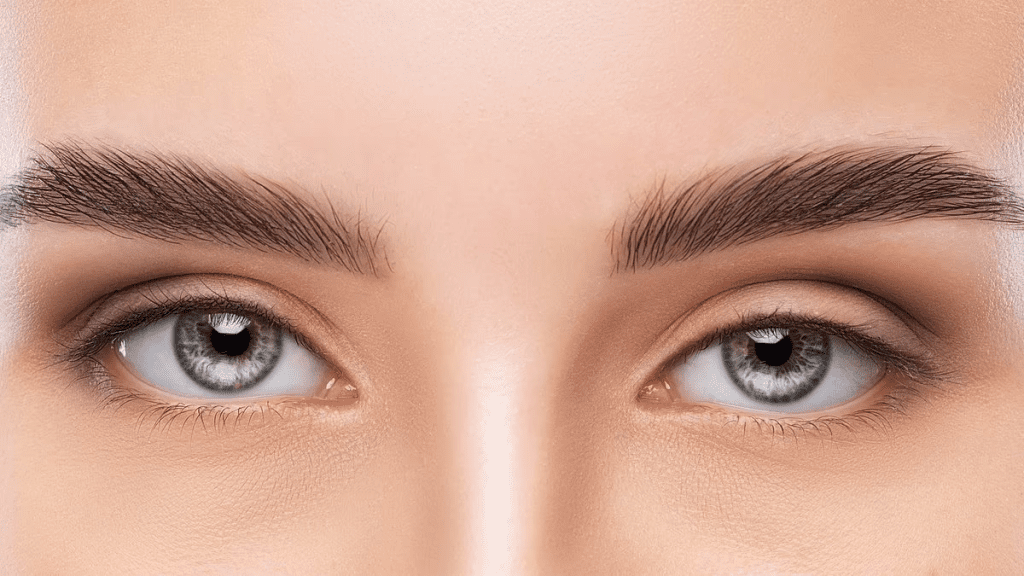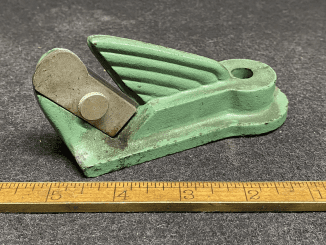According to a fascinating study from the University of Toronto, your eyebrows could be the key to spotting a narcissist. Believe it or not, the thickness and density of one’s eyebrows can actually provide clues about their level of narcissistic tendencies.
The research team photographed 40 undergraduate students and then had other students evaluate how narcissistic each person appeared based solely on their eyebrows. The results showed a clear correlation – the more “distinguished” the eyebrows, the more the person was perceived as being narcissistic.

But why does this eyebrow-narcissist connection exist? One theory is that narcissists, who are preoccupied with their physical appearance and desirability, are more likely to groom their eyebrows meticulously. After all, eyebrows play an important role in facial recognition and mate selection.
Narcissists tend to have a heightened sense of self-importance and an excessive need for admiration. They also commonly lack empathy and are manipulative in their relationships with others. This self-centeredness often extends to their physical appearance as well.
The study authors suggest that narcissists’ fixation on maintaining perfect, well-groomed eyebrows may stem from their strong desire to put their “best face forward” and project an image of superiority. Since eyebrows are such a prominent facial feature, narcissists likely see them as an important tool for attracting attention and admiration from others.
Interestingly, when the researchers swapped the eyebrows of narcissistic and non-narcissistic individuals in the photographs, the participants’ perceptions of the person’s personality changed accordingly. This further reinforces the notion that eyebrows can be a reliable indicator of narcissistic tendencies.

While the eyebrow connection is a fascinating finding, it’s not the only way you can detect narcissistic traits by simply observing someone’s face. More recent studies have identified another tell-tale sign:
When a narcissist is faced with failure or criticism, they often exhibit small, twitching movements around their eyes and forehead. This subtle muscular reaction is thought to be a defense mechanism that narcissists use to regulate their emotional responses to negative feedback.
So if you pay close attention, you may be able to spot these tiny facial ticks the next time you give a narcissist some constructive criticism or point out a shortcoming. Of course, you’ll need to be vigilant, as these movements can be easy to miss if you’re not looking closely.
It’s important to note that there’s a difference between someone exhibiting narcissistic traits and a person who has been clinically diagnosed with Narcissistic Personality Disorder (NPD).

NPD is a mental health condition characterized by an inflated sense of self-importance, a deep need for admiration, and a lack of empathy for others. Some key signs of NPD, according to the Mayo Clinic, include:
- Unreasonably high sense of self-importance
- Constant need for excessive admiration
- Feeling entitled to special treatment
- Exploiting or taking advantage of others
- Inability to recognize the needs and feelings of others
- Envious of others or believes others are envious of them
- Arrogant, boastful behaviors
While many people may display narcissistic tendencies to some degree, a true narcissist with NPD will exhibit these traits to an extreme and debilitating degree, making it very difficult for them to maintain healthy relationships.
If you believe someone you know may be a narcissist, it’s important to understand that getting them to seek treatment can be extremely challenging. Narcissists are highly resistant to criticism and are unlikely to willingly acknowledge that they have a problem.

Your best course of action is to try to distance yourself from the narcissist as much as possible. Setting firm boundaries and limiting contact may be necessary to protect your own mental and emotional well-being.
If you suspect you may be exhibiting narcissistic traits yourself, the healthiest thing to do is to seek professional help. Talk to your healthcare provider, who can refer you to a licensed therapist who specializes in narcissism and personality disorders. With the right support, it is possible to manage and overcome narcissistic tendencies.
While the idea of diagnosing narcissism by examining someone’s eyebrows may seem unconventional, this study suggests there may be some truth to this connection. By understanding the link between eyebrow grooming and narcissistic personality traits, we can become better equipped to spot the warning signs early on.
Of course, this is just one potential indicator of narcissism. Paying close attention to a person’s facial expressions and reactions to criticism or failure can also provide valuable clues. Ultimately, the key is remaining vigilant and not hesitating to distance yourself from anyone exhibiting the hallmarks of Narcissistic Personality Disorder. Your own wellbeing should be the top priority.


